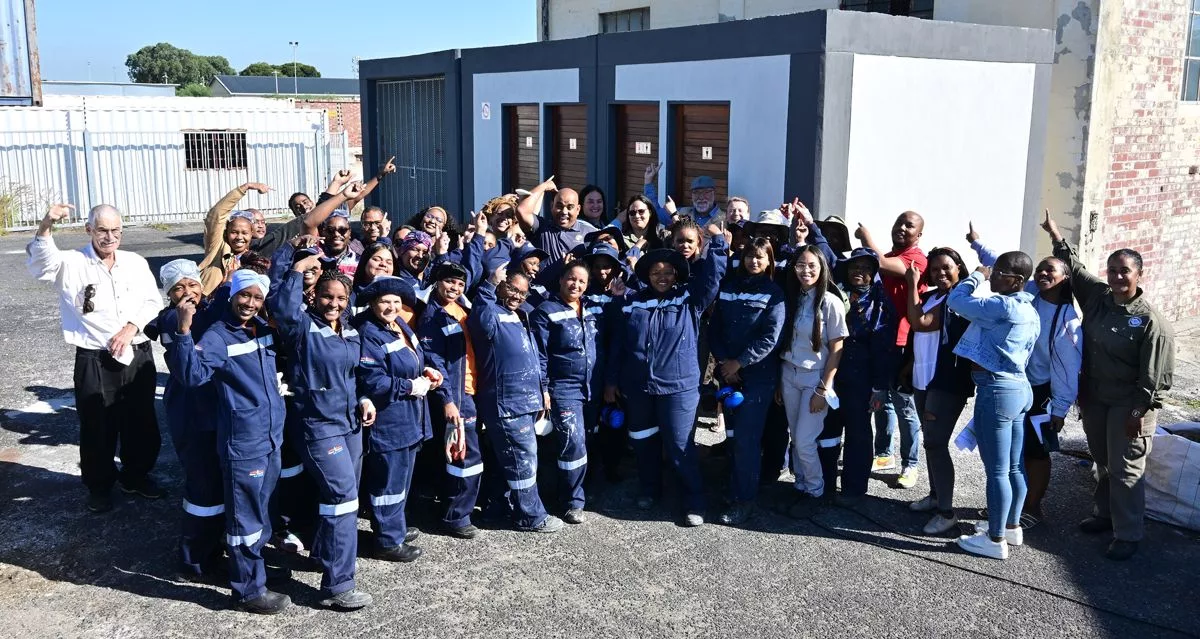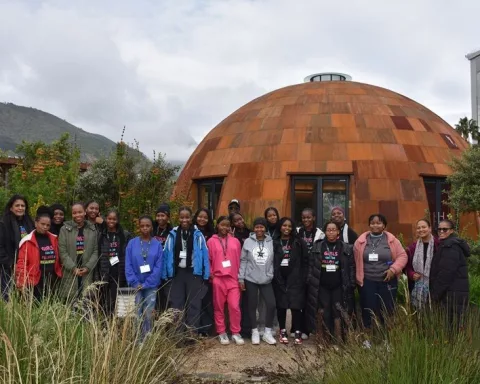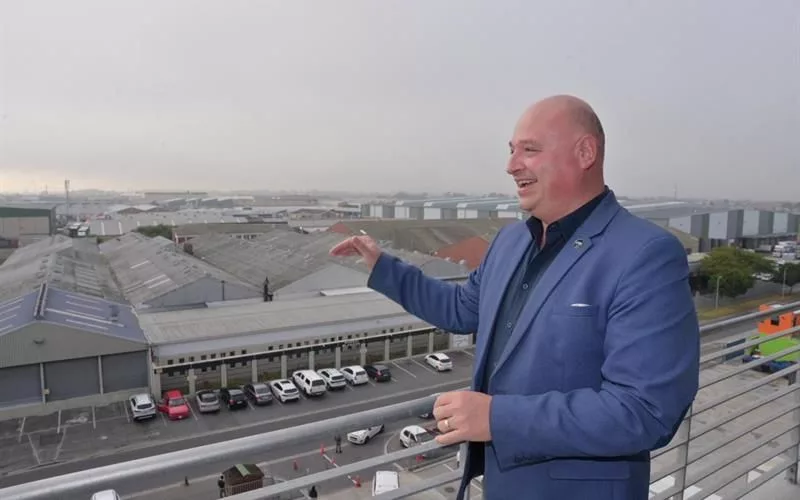The Carbon Smart Skills Development Programme is an innovative project in Cape Town that empowers jobless women through eco-conscious skills training. The curriculum includes green building concepts, small to medium-sized enterprise development, and soft skills for the workplace. A unique aspect of the program is the use of alien invasive species for environmentally friendly building materials. The initiative equips women with skills to succeed in the growing green economy, benefiting the community as a whole.
Fostering Female Empowerment through Sustainable Practices: The Carbon Smart Skills Development Programme is an innovative project by the Environmental Management Department that provides jobless women with training in eco-conscious skills. The curriculum includes green building concepts, development of small to medium-size enterprises, and crucial soft skills for the workplace. The programme’s unique methodology in construction, using alien invasive species for eco-friendly building materials, underscores its commitment to environmental preservation. The initiative equips the women with necessary skills to excel in the burgeoning green economy, benefiting not only the women involved but also the wider community.
Advance in Eco-conscious Endeavour
In the bustling cityscape of Cape Town, South Africa, an innovative project has started to burgeon. The Environmental Management Department (EMD) of the city propelled the Carbon Smart Skills Development programme. This venture stands as a lighthouse of optimism for jobless women, providing them with an avenue towards self-sufficiency via thorough training and hands-on experience.
In September of 2023, the project welcomed its first participants, meticulously picking thirty women from various city districts, including Garden Village, Maitland, Langa; Philippi, Lentegeur, and Dunoon. The selected participants are granted three years of employment with the City, focusing their training at the Carbon Smart Training Academy situated in Maitland.
A Unique Educational Ascent
The curriculum of the programme is particularly designed to encompass different elements like green building concepts, development of small to medium-size enterprises (SMMEs), and crucial soft skills for the workplace. Within just a few months, the participants have already undergone Health and Safety training and completed a course in Biomass Insulated Concrete (BIC).
Moreover, BIC training stands out as it positions the participants at the forefront of environmentally conscious construction. The BIC product is an amalgam of recycled fabric, plastics, glass, ceramics, and different alien invasive species, and is an environment-friendly building material. This distinctive construction material has already been applied in constructing two gate houses as well as various experimental construction projects such as sanitary facilities at the city’s nature reserves.
A Key Moment and Sustainable Commitment
On the 16th of April 2024, Alderman Eddie Andrews, the Deputy Mayor and Mayoral Committee Member for Spatial Planning and Environment, graced the launch of the programme. He personally met the courageous participants and shared inspiring words. “The teamwork between our Environmental Management and EPWP departments have played a crucial role in making this programme a reality, one that could potentially instigate positive transformation within the communities where these women reside,” Alderman Andrews expressed.
The Carbon Smart Skills Development programme symbolizes not only an investment in the human capital of Cape Town but also a pledge to sustainable development. It captures the spirit of 21st-century urban development, where ecological sustainability and social fairness are the dual foundations of progress.
The unique methodology of the programme in construction, making use of alien invasive species for eco-friendly building materials, underscores its commitment to environmental preservation. It’s a project that triggers not only self-reliance but also advocates the notion of sustainability.
Partnerships and Progressive Training
Acknowledging the enormous contributions of its external partners, the Carbon Smart Skills Development programme has been enhanced by the knowledge and resources of Dr. Guy Preston and Engineer Dirk Oosthuizen, who have significantly contributed to its progress.
The initiative also integrates two trainee levels, ensuring a systematic and thorough skill development for the participants. This mix of theoretical and practical training will equip the women with the necessary skills to excel in the burgeoning green economy.
To conclude, the Carbon Smart Skills Development programme is a glowing symbol of positive transformation, benefiting not just the women involved but also the wider community. It showcases the revolutionary power of sustainability when used as a tool for social improvement. By empowering the city’s women, the programme also adds to the resilience of the urban structure, ensuring that the growth of Cape Town is both socially fair and environmentally considerate.
What is the Carbon Smart Skills Development Programme?
The Carbon Smart Skills Development Programme is an innovative project in Cape Town that empowers jobless women through eco-conscious skills training.
What does the curriculum include?
The curriculum includes green building concepts, small to medium-sized enterprise development, and soft skills for the workplace.
What is the programme’s unique aspect?
A unique aspect of the program is the use of alien invasive species for environmentally friendly building materials.
How long is the employment period for participants?
Selected participants are granted three years of employment with the City, focusing their training at the Carbon Smart Training Academy situated in Maitland.
Who are the external partners involved in the programme?
Acknowledging the enormous contributions of its external partners, the Carbon Smart Skills Development programme has been enhanced by the knowledge and resources of Dr. Guy Preston and Engineer Dirk Oosthuizen, who have significantly contributed to its progress.
What is the goal of the programme?
The initiative equips women with skills to succeed in the growing green economy, benefiting the community as a whole.












